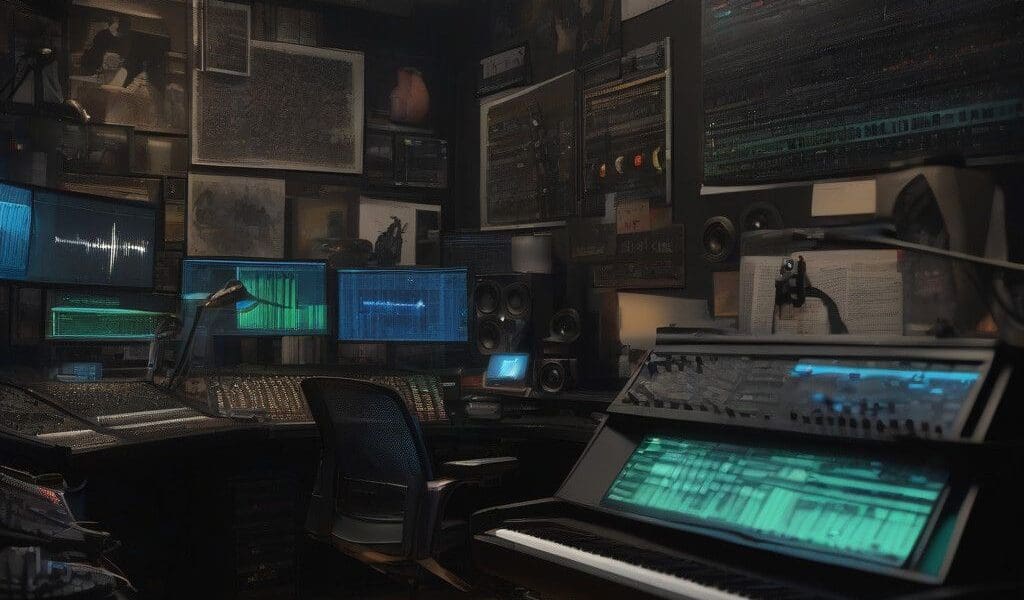AI and the Future of Music: Alex Van Halen's Journey to Complete Unfinished Tracks
In the landscape of modern music, artificial intelligence (AI) is progressively becoming an invaluable asset for artists. A prime example of this trend is Alex Van Halen’s recent exploration into using AI technology to complete unreleased tracks from his legendary band, Van Halen. This integration of AI could not only help revive the musical legacy left behind by his late brother, Eddie Van Halen, but it also symbolizes a broader shift in how music may be created in the future.
Alex Van Halen has articulated a desire to utilize AI to analyze Eddie’s distinct guitar style to generate new solos. This concept is rooted in the extensive vault of music that the band has accumulated over the years, although many of these tracks remain incomplete. Eddie, who passed away in 2020, was renowned for his incredible guitar prowess, and using AI to mimic his unique sound and techniques is no small task. By engaging advanced algorithms, Alex hopes to breathe new life into these unfinished songs.
To bring this idea to fruition, Alex reached out to OpenAI—an organization at the forefront of AI developments. OpenAI’s technologies have been instrumental in various creative fields, including visual arts and music. By analyzing a vast dataset of Eddie Van Halen’s recordings, AI could potentially generate solos that seamlessly blend with the existing material, thereby creating a posthumous continuation of his work.
One intriguing aspect of Alex’s project is his vision to pair AI-generated guitar solos with vocals from renowned musicians, such as Robert Plant from Led Zeppelin. Although Alex has not spoken to Plant in many years, this bold vision illustrates not only his determination but also the possibilities that AI can offer in collaborative projects. The process could be lengthy and complex, spanning several years to achieve the desired results—an important reminder that while technology can facilitate creativity, the human element remains crucial.
The use of AI in music is not a novel concept. Numerous artists have begun to explore its capabilities. For instance, country singer Randy Travis, who lost his ability to sing after a stroke, recently released a song featuring AI-generated vocals that reconstituted his voice. This project not only demonstrated the power of AI in revitalizing a singer’s career but also opened doors for artists who wish to explore new frontiers of creativity. The success of Travis’s endeavor not only encourages but also legitimizes the use of AI as a collaborator in the music industry.
Moreover, this exploration into AI raises numerous questions about intellectual property rights and the ethical considerations surrounding using an artist’s likeness and style posthumously. The blending of AI capabilities with human creativity contains a fine line, and individuals in the industry must navigate these waters carefully. As Alex Van Halen moves forward with his project, he will undoubtedly encounter discussions regarding the ownership of AI-generated content and the ethical implications of relying on technology to produce music.
This venture into AI is not merely about completing old tracks but also highlights a significant trend within the industry: the move towards integrating technology as a collaborative partner. With the rise of machine learning, emerging artists and seasoned musicians alike are learning to use AI to not only enhance their artistic expression but also to accelerate the creative process. AI has developed tools capable of generating music, suggesting improvements, and even identifying hits, which can be powerful resources in the musically competitive landscape.
As the music industry continues to evolve, Alex Van Halen’s endeavor serves as a case study in the intersection of creativity and technology. The potential to complete unreleased songs that carry emotional significance for both the artist and the fans resonates strongly in today’s culture. By merging AI with the storied legacy of Van Halen, Alex is not just breathing life into past creations but also setting the stage for a dialogue about the future of music—one where technology acts as an ally to the art form rather than a replacement.
In conclusion, the exploration of AI in music composition is a fascinating development that stands to benefit both artists and audiences. As musicians like Alex Van Halen venture into this new territory, the potential outcomes could reshape how music is produced and experienced—creating a landscape where the echoes of the past can blend effortlessly with the innovations of the future.








